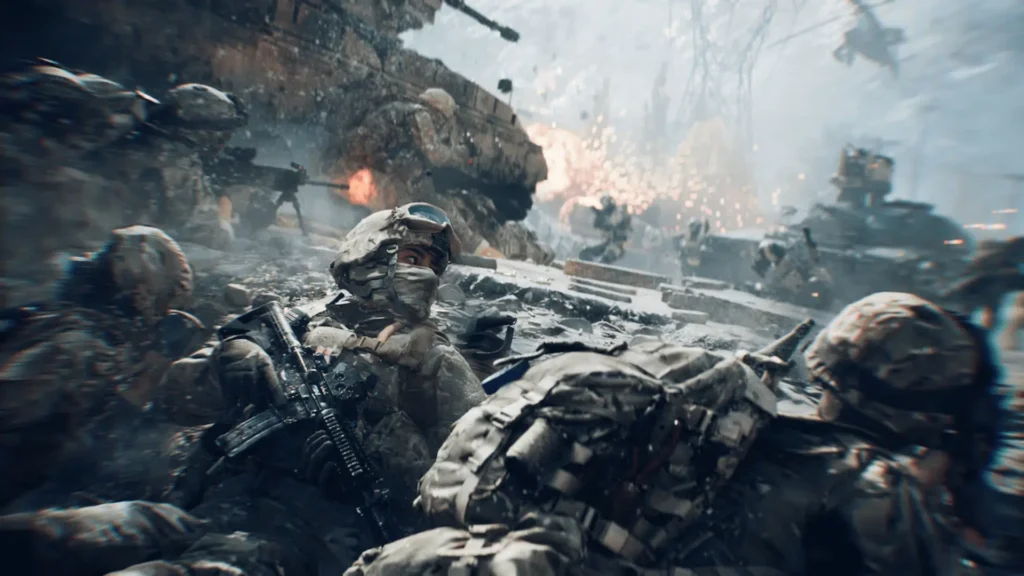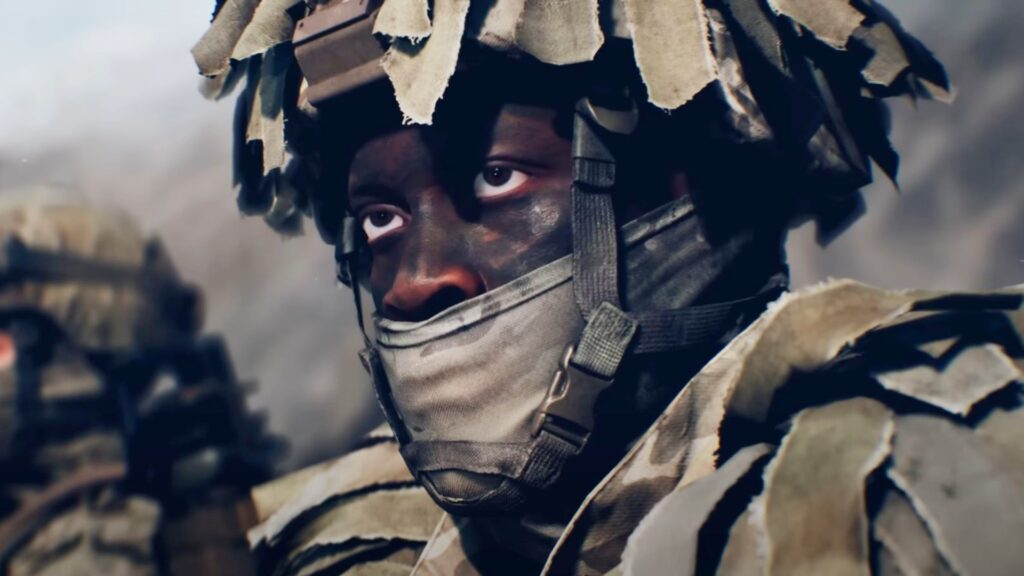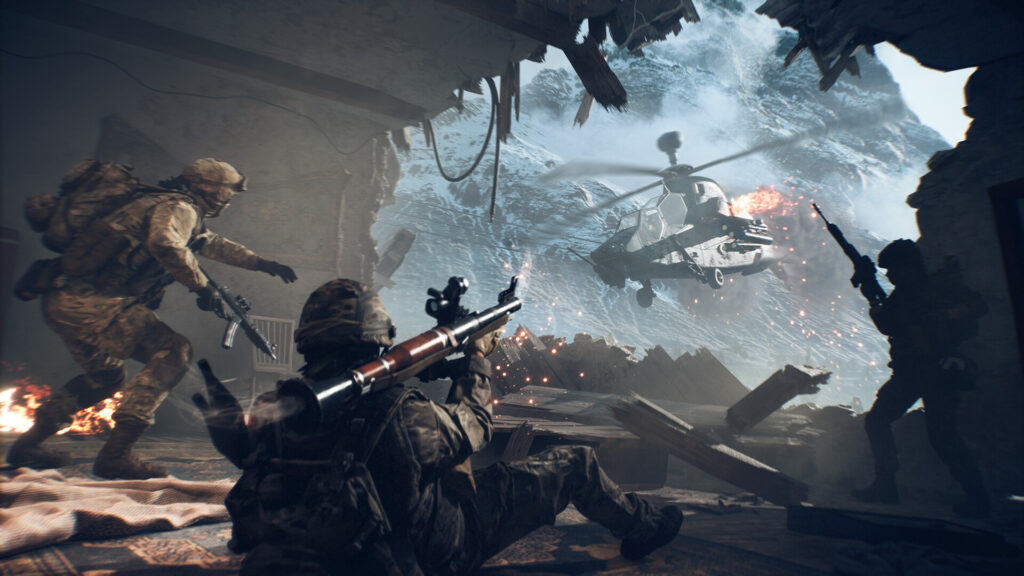a resurgence in scale and spectacle
electronic arts has done it again. the gaming giant announced that its latest entry in the battlefield franchise surpassed seven million copies sold within the first three days of release — a feat that not only marks the biggest launch in the series’ history but reaffirms its cultural weight in the modern gaming landscape. for a franchise that has battled its own reputation over the past decade, this moment feels like redemption — a return to the high-octane warfare and scale that once defined it.
in a time when most publishers cautiously measure engagement metrics and live-service retention, battlefield’s raw sales figure cuts through the noise with old-school clarity. numbers still matter, and seven million in seventy-two hours says everything about the sheer magnitude of anticipation behind this release. it is not just a commercial milestone; it is a statement — a declaration that players still crave large-scale chaos, tactical teamwork, and the cinematic adrenaline that only battlefield seems to perfect.
the weight of the franchise legacy
for nearly two decades, battlefield has been a central pillar in the evolution of the first-person shooter. its roots go back to 2002’s battlefield 1942, a title that introduced players to sprawling maps, vehicular warfare, and squad-based strategy at a time when most shooters were confined to tight corridors. it was the first major fps to make combat feel like a living ecosystem — planes soaring overhead, tanks rumbling across deserts, soldiers shouting coordinates through static.
from battlefield 2 to bad company 2, from battlefield 3 to battlefield 1, each entry carried its own technological and cultural mark. but it also became clear that the franchise struggled to maintain its footing in the new digital era. the controversial release of battlefield 2042 in 2021 nearly derailed the brand altogether, mired by performance issues, missing features, and a perception of creative stagnation.
many believed that battlefield might never recover. fans moved on to other ecosystems, and competitors like call of dutycemented their yearly dominance. even ea, a company known for its relentless focus on franchises, appeared uncertain about how to revive the series.
yet here we are, with battlefield 6 (as players have colloquially called the latest installment) proving that reinvention is possible when ambition meets restraint.
architecture of a blockbuster comeback
part of what made battlefield’s resurgence so potent is its structural clarity. ea and dice — the stockholm-based studio behind the franchise — approached this release with the humility of a team that knew exactly what had gone wrong last time. the developers listened to players, re-engineered the destruction physics, rebuilt netcode stability, and returned to the essence of what made battlefield distinct: massive arenas, teamwork-driven combat, and emergent chaos that feels unscripted.
the result is a game that doesn’t try to mimic trends — no hero shooter gimmicks, no hollow battle passes masquerading as depth — but instead reclaims identity. critics and fans alike noted that the maps feel purposeful, the gunplay responsive, the pacing dynamic. it is not revolutionary in mechanics, but it is evolutionary in execution. it feels like dice finally remembered that battlefield is about scale, not spectacle alone.
that self-correction laid the foundation for the staggering commercial numbers. ea’s marketing machine did the rest. pre-launch campaigns spanned multiple platforms, from cinematic trailers to immersive beta experiences that let players taste the chaos early. early access versions leaked onto twitch and youtube, creating viral buzz even before the official release. by the time the digital storefronts opened, battlefield was not merely a game — it was an event.
the digital economy of hype
the modern video game launch is not just a retail moment; it is a cultural countdown. ea orchestrated its campaign with almost architectural precision, timing everything from pre-order incentives to influencer coverage. digital pre-sales alone accounted for a majority of those seven million units, a reflection of the industry’s irreversible shift from discs to downloads.
within the first 72 hours, battlefield logged over 170 million matches played, 15 million hours streamed, and trended in more than 30 countries on social media platforms. streamers became ambassadors, and casual players became evangelists. word-of-mouth cascaded across reddit, discord servers, and esports communities, generating the kind of organic energy that even billion-dollar advertising budgets can’t buy.
but what distinguishes this success is not only its scale but its tone. unlike the cautious optimism that greeted battlefield 2042, this release sparked genuine enthusiasm. players weren’t apologizing for the franchise anymore — they were celebrating it. that shift in sentiment is perhaps the most valuable currency ea could have earned.
psychology of trust regained
trust, once broken, rarely returns easily in gaming communities. dice had to rebuild that trust through proof, not promises. it began with technical transparency — open communication on patch schedules, post-launch roadmaps, and gameplay balance updates. every move since the beta phase appeared designed to demonstrate accountability.
the first impression mattered, and battlefield 6 delivered it flawlessly. server stability held up even under massive load; graphics optimization across next-gen consoles impressed critics; the level design felt deliberate rather than procedural. the result was a collective sigh of relief — the sense that, for once, everything worked as it should.
the emotional undercurrent behind the game’s success is almost restorative. gamers, particularly long-time fans, wanted battlefield to win. they wanted proof that passion could still triumph over cynicism in big-budget publishing. when those seven million copies sold, they weren’t just numbers — they were votes of confidence.
implications
the shooter market has always been defined by its heavyweight rivalry: call of duty versus battlefield. in recent years, that rivalry had dulled, with call of duty’s seasonal machine seemingly unstoppable. battlefield’s explosive return disrupts that balance, offering a serious alternative to the hyper-commercial cadence of activision’s model.
what’s fascinating is that both franchises now occupy distinct philosophical spaces. call of duty has evolved into a polished, modular entertainment platform — a kind of multimedia service that blends esports, live updates, and cinematic storytelling. battlefield, on the other hand, doubles down on realism, chaos, and authenticity. one aims to be accessible, the other to feel epic. in 2025, that distinction may finally matter again.
ea’s earnings report following the launch reflected this shift. stock prices spiked, analysts revised revenue forecasts upward, and investor sentiment turned bullish. internal projections estimate lifetime sales exceeding 25 million units by the end of fiscal year 2026. that kind of commercial velocity gives ea strategic leverage in future negotiations, from licensing deals to platform exclusivity discussions.
but beyond economics, there’s a cultural implication: battlefield’s success reaffirms the enduring appetite for premium, paid experiences. in an era dominated by free-to-play models, the willingness of millions to buy a full-price title demonstrates that players still value craftsmanship and cohesion when it’s delivered with integrity.
beyond
of course, a blockbuster opening weekend doesn’t secure long-term survival. retention is the true test of modern games, and battlefield’s future depends on sustained engagement. dice has already outlined a year-long roadmap of expansions, new maps, and seasonal events designed to maintain player interest.
however, the risk remains that momentum could dissipate if updates stagnate or balancing issues arise. the same digital virality that propelled battlefield’s success could also turn on it swiftly if player frustrations spread. dice’s history of long patch cycles has often been criticized, and maintaining transparent communication will be key.
the second challenge lies in differentiation. while battlefield 6 reclaims identity, it must also continue evolving. technological advancements in ai, procedural destruction, and narrative integration will determine whether the franchise can lead innovation rather than merely follow it.
there’s also the cultural challenge: keeping battlefield relevant in a market where gaming itself is fragmenting. players today are just as likely to spend their evenings in fortnite concerts or roblox experiences as they are in traditional shooters. to remain essential, battlefield must continue merging cinematic immersion with community adaptability — the balance between spectacle and agency that defines its DNA.
the numbers behind the phenomenon
the statistical velocity of battlefield’s opening week is staggering when contextualized. seven million copies in three days equates to roughly one sale every 37 milliseconds globally. that rate surpasses the opening of battlefield 3 (which sold five million in its first week) and eclipses battlefield 1’s four-million-copy debut.
digital storefront data reveals that over 80 percent of purchases were made digitally, underscoring the shift in consumer behavior since 2020. physical retail accounted for a smaller but still significant slice, particularly across europe and japan, where collectors’ editions sold out within hours.
social engagement metrics show parallel surges. battlefield’s official hashtag reached over 600 million impressions on launch weekend, while user-generated content on tiktok surpassed 200 million views. on twitch, the game consistently occupied the top five streamed categories, outperforming even established giants like valorant and apex legends.
ea’s internal data confirms more than 172 million matches played and an average player session length of nearly two hours — a remarkable engagement level for a newly launched title. those numbers translate not just to profitability, but cultural dominance.
from recovery to renaissance
the larger narrative around battlefield’s success is not just financial; it’s philosophical. it demonstrates that major studios can still recover from failure when they choose to respect their audiences. battlefield 6 doesn’t reinvent the wheel, but it polishes it until it shines. it’s a reminder that progress doesn’t always require radical reinvention — sometimes it just demands precision, honesty, and craft.
the victory also redefines dice’s creative standing within ea. long perceived as a studio overshadowed by its publisher’s corporate image, dice has regained authorship of its own legacy. its developers have become visible again, engaging directly with fans through livestreams, feedback forums, and transparent development diaries. the humanization of the process has helped bridge the distance between studio and community.
and there’s something poetic about this comeback arriving in 2025, in an industry where patience is rare and forgiveness rarer. battlefield was once written off as a cautionary tale of ambition mismanaged — too big, too broken, too late. now it stands as proof that no franchise is beyond repair when guided by humility and technical clarity.
No comments yet.










